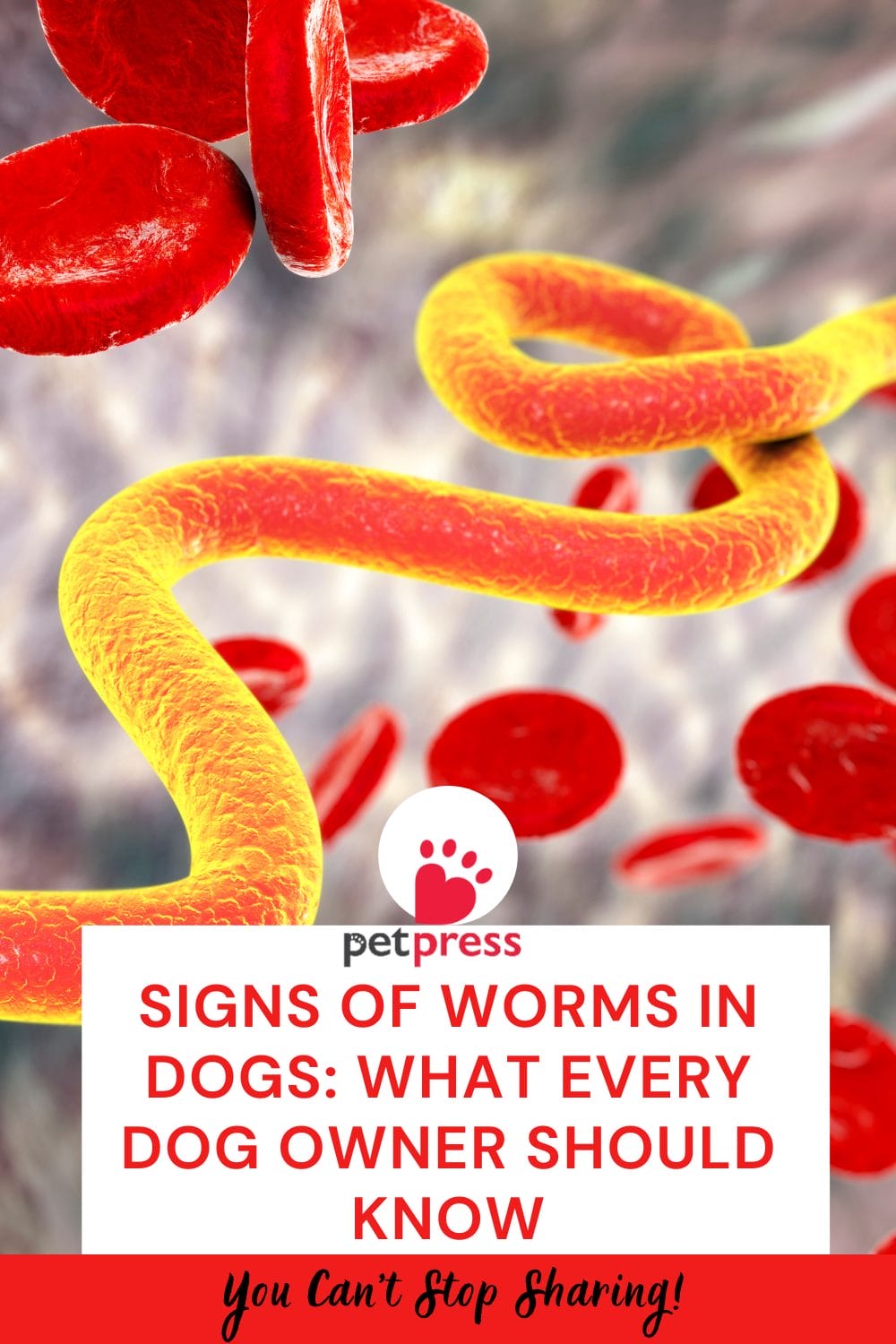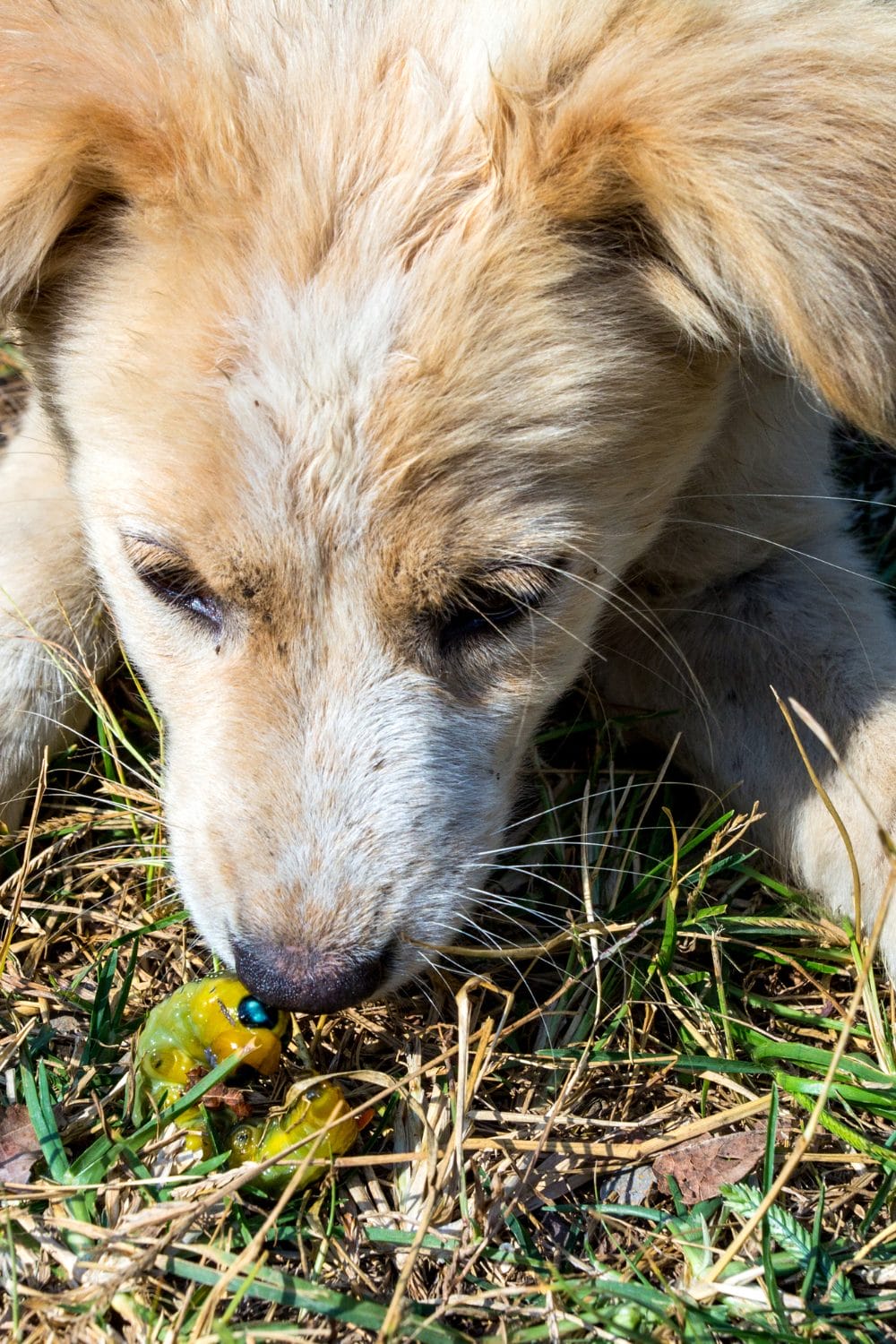
As a dog owner, you want nothing but the best for your furry companion. Unfortunately, one of the most common health issues is Signs of Worms in Dogs.
If left untreated, these parasites can cause serious health problems. Understanding the signs of worms in dogs is crucial for timely intervention and treatment.
This blog post will explore the significance of recognizing these signs, the symptoms to watch for, how to keep worms at bay, and prevention tips that will help you protect your dog.
Significance of Recognizing Worm Infestations
Recognizing the signs of worms in dogs is essential for several reasons:
- Health Risks: Worm infestations can lead to severe health complications, including malnutrition, anaemia, and even death if left untreated.
- Early Intervention: Identifying symptoms early allows for prompt veterinary care, which can prevent complications and facilitate faster recovery.
- Contagion: Some types of worms can be transmitted to humans, particularly children. Awareness of these signs can help protect your family.
- Overall Well-being: Keeping your dog free of parasites contributes to their overall well-being and happiness, which may allow them to live a healthy and active life.
Signs of Worms in Dogs

The signs of worms in dogs can vary depending on the type of worm and the severity of the infestation. Here are some common symptoms to watch for:
Weight Loss
One of the first signs of a worm infestation is unexpected weight loss. Despite having a good appetite, dogs may lose weight due to the worms consuming their nutrients.
Increased Appetite
Conversely, some dogs may exhibit an increased appetite but still lose weight. This can be attributed to the worms competing for the nutrients your dog needs.
Vomiting
Regular vomiting, especially if you notice segments of worms in the vomit, can indicate a worm infestation. Some worms, such as tapeworms, can be expelled this way.
Diarrhea
Frequent diarrhea, sometimes with blood or mucus, is another sign of worms in dogs. This can occur due to the irritation and inflammation caused by the parasites.
Bloated Abdomen
A swollen or distended abdomen is often associated with severe worm infestations. The accumulation of worms in the intestines can lead to noticeable bloating.
Poor Coat Condition
Worm infestations can lead to a dull, dry, or brittle coat. This happens because the parasites are stealing vital nutrients from your dog.
Lethargy
If your dog seems unusually tired or lacks energy, it could be a sign of an infestation. Worms can cause anemia and general weakness.
Itching and Scratching
Certain worms, such as fleas or ticks that transmit tapeworms, can cause itching and scratching around the rear end. This is often due to irritation from the worms.
Visible Worms in Feces
Finding worms or segments of worms in your dog’s feces is a clear sign of an infestation.
Tapeworm segments may resemble grains of rice, while roundworms may appear as long, spaghetti-like structures.
Foul Breath
A bad smell emanating from your dog’s mouth can also be a symptom of worms. Some parasites can contribute to digestive issues that lead to halitosis.
How to Keep Worms Away from Dogs?

Prevention is always better than treatment when it comes to worms in dogs. Here are some effective strategies to help keep worms at bay:
Regular Veterinary Check-ups
Regular visits to the veterinarian are crucial for maintaining your dog’s health.
Your vet can perform routine fecal exams to check for worm infestations and provide appropriate deworming medications if necessary.
Maintain Good Hygiene
Keeping your dog’s living environment clean is essential. Regularly clean up after your dog and dispose of feces promptly to minimize the risk of worm eggs contaminating the area.
Proper Diet and Nutrition
Feed your dog a balanced diet rich in essential nutrients. A healthy diet strengthens your dog’s immune system, making it less susceptible to parasitic infections.
Prevent Exposure to Contaminated Areas
Avoid letting your dog roam in areas where they might come into contact with feces from infected animals. Dog parks, beaches, and other public places can pose risks.
Use Preventative Medications
Talk to your veterinarian about preventative medications for parasites. Some options can provide broad-spectrum protection against various types of worms.
Regular Deworming
Implement a routine deworming schedule based on your vet’s recommendations. Even if your dog appears healthy, regular deworming can prevent infestations.
Prevention Tips

In addition to the aforementioned strategies, here are some additional tips for preventing worms in dogs:
- Avoid Feeding Raw or Undercooked Meat: Raw meat can harbour parasites. Always cook meat thoroughly before feeding it to your dog.
- Limit Contact with Stray Animals: Stray dogs can carry parasites that may be transmitted to your dog. Keep a safe distance from them.
- Check for Fleas and Ticks: Many worms are transmitted through fleas and ticks. Use appropriate flea and tick preventative measures to reduce the risk.
- Socialize Responsibly: If you frequently take your dog-to-dog parks or social gatherings, ensure that all dogs are healthy and up to date on their vaccinations.
- Educate Family Members: Make sure everyone in your household knows about the risks of worms and how to prevent them, especially young children.
Conclusion
Recognizing the signs of worms in dogs is vital for ensuring their health and well-being.
As responsible pet owners, we must stay vigilant for any symptoms of worm infestations and take proactive steps to prevent them.
Regular veterinary visits, good hygiene practices, and preventive medications are essential to keeping our furry friends safe from these pesky parasites.
By understanding the signs and taking preventive measures, we can help our dogs lead happy, healthy lives free from the burden of worms.
Frequently Asked Questions
The most common types of worms that can affect dogs are roundworms, hookworms, whipworms, tapeworms, and heartworms. Each type has different modes of transmission and symptoms.
Signs of worms in dogs include weight loss, increased appetite, vomiting, diarrhea, bloating, poor coat condition, lethargy, itching, visible worms in feces, and foul breath.
The frequency of deworming depends on several factors, including your dog’s age, lifestyle, and risk of exposure. Consult your veterinarian for a personalized deworming schedule.
Yes, some types of worms, particularly roundworms and hookworms, can be transmitted to humans. Practicing good hygiene and keeping your dog healthy can minimize this risk.
If you suspect your dog has worms, contact your veterinarian for an examination and appropriate treatment. Do not attempt to self-diagnose or treat without professional advice.
- Dogs Pooping Blood: A 2026 Guide for Concerned Pet Parents - February 23, 2026
- How to Celebrate a Dog’s First Birthday on a Budget: 2026 Guide - February 18, 2026
- Best Shampoo for Sensitive Skin Dog Grooming: 2026 Guide - February 12, 2026


GIPHY App Key not set. Please check settings